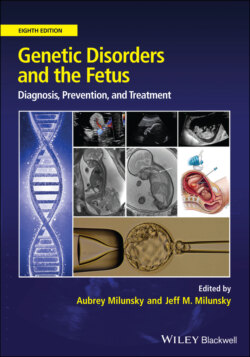Читать книгу Genetic Disorders and the Fetus - Группа авторов - Страница 63
Testing the other children
ОглавлениеInvariably, parents faced with the news of their affected fetus question the need to test their other children. Answers in the affirmative are appropriate when diagnosis of a disorder is possible. Carrier detection tests, however, need careful consideration and are most appropriately postponed until the late teens, when genetic counseling should be offered. Given the complex dilemmas and far‐reaching implications of testing asymptomatic children for disorders that may manifest many years later, parents would best be advised to delay consideration of such decisions while in the midst of dealing with an existing fetal defect. In later consultations, the thorny territory of predictive genetic testing of children can be reviewed at length.1002–1005 Fanos1002 emphasized that testing adolescents “may alter the achievement of developmental tasks, including seeking freedom from parental figures, establishment of personal identity, handling of sexual energies and remodeling of former idealizations of self and others.” Fanos also emphasized that parental bonding may be compromised by genetic testing when the child's genetic health is questionable. Parents may react to the possible loss or impairment of a child by developing an emotional distance, recognized as the vulnerable child syndrome.1006 Other aspects, including interference with the normal development of a child's self‐concept, introduce issues of survivor guilt or increase levels of anxiety already initiated by family illnesses or loss.1006 Predictive testing of children for later manifesting neurodegenerative or other disorders would rarely be recommended, except in circumstances in which early diagnosis could offer preventive or therapeutic benefit.
